What is Pony Racing? How Is It Different To Horse Racing?
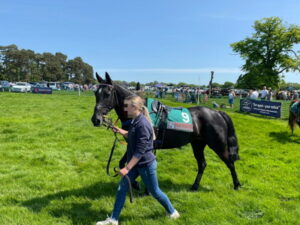 Everyone in the United Kingdom knows about the gravitas that horse racing holds. Huge events like Royal Ascot, Cheltenham Festival, and so on, draw in big crowds every year. That’s understandable, considering how long horse racing has been running in the UK. But this is not the only sport to incorporate equine animals. In fact, there is something known as pony racing that also occurs in the UK and Ireland.
Everyone in the United Kingdom knows about the gravitas that horse racing holds. Huge events like Royal Ascot, Cheltenham Festival, and so on, draw in big crowds every year. That’s understandable, considering how long horse racing has been running in the UK. But this is not the only sport to incorporate equine animals. In fact, there is something known as pony racing that also occurs in the UK and Ireland.
The first ever pony race took place in 2004 at Newton Abbot racecourse. And it has grown in popularity ever since then. What exactly is pony racing, though? Is it so different to horse racing in a big way? Well, it does have its own appeal.
The fact that nobody over the age of 17 can take part in it is one major difference. But here, we thought we’d look further into what pony racing is. We’ll outline the differences between it and horse racing. Read through this guide to pony racing to inform yourself on it.
Pony Racing Provides a Fast-Track for Up-and-Coming Jockeys
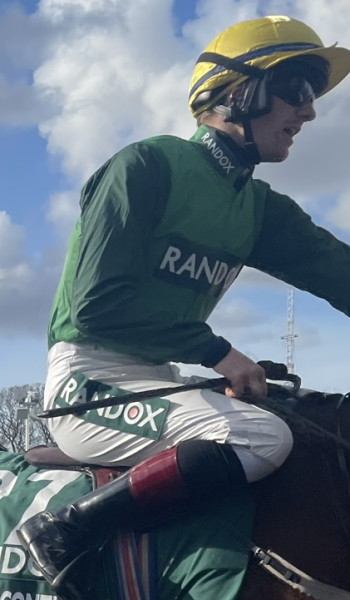 If you were to take a look at horse racing today, there would be an instant link to pony racing. Take the names of certain jockeys, for example. Sam Twiston-Davies. Harry Cobden. Bryony Frost. Just three examples of jockeys who began their careers taking part in pony racing. Today, they are some of the best horse riders in action. Frost became the first female jockey to win a Grade 1 race at Cheltenham in 2019. She may have had her first horse ride under rules at age 18, but before that, she was a pony rider.
If you were to take a look at horse racing today, there would be an instant link to pony racing. Take the names of certain jockeys, for example. Sam Twiston-Davies. Harry Cobden. Bryony Frost. Just three examples of jockeys who began their careers taking part in pony racing. Today, they are some of the best horse riders in action. Frost became the first female jockey to win a Grade 1 race at Cheltenham in 2019. She may have had her first horse ride under rules at age 18, but before that, she was a pony rider.
Pony riding may be an unfamiliar sector to some people but it is growing at a considerable rate as an equestrian sport. Not only when it comes to those looking to compete, but in spectators, too. This increase in popularity has given the horse racing world some of its best jockeys in a long time. National Hunt and Flat racing have been awash with exceptional young riders. But how did this sport even come about in the first place?
Well, back in 2004, a Quality Jump Racing Review took place. At the time, the British Horseracing Board (BHB) approved a new blueprint. There were concerns over Irish jockeys being much more advanced in various areas. With a higher technical level, age perspective and experience, British jockeys needed something.
From the review, a determination was made. Experts concluded that it was down to the practice of pony racing in Ireland. This was why their jockeys were so much better at horse racing than the British. Through this, riders exposed themselves to horse racing and the demands of the sport early on. It was this that led to them fast-tracking their way to supreme development in the field.
While the first pony race took place in Newton Abbot (and had its finals at Wincanton), this was only the beginning. In 2007, the Pony Racing Authority became an entity, which still regulates the sport today. In the proceeding years, pony racing has gone from strength-to-strength. That’s despite it not receiving any funding or sponsorship. Horse racing received €79 million in 2020, but none of that went to pony racing.
The truth is in the data and statistics. The racing world has seen over 150 riders graduate from pony racing to the big leagues. And many others also work within the horse racing industry in general. In 2017, 185 jockeys in possession of a BHA licence to ride or a rider certificate began in pony racing. The jockeys also come from a variety of backgrounds. This includes those already within racing, riders with vast equestrian heritage, and even those without links at all. That further goes to prove that pony racing is something for everyone to enjoy.
The Details of Pony Racing
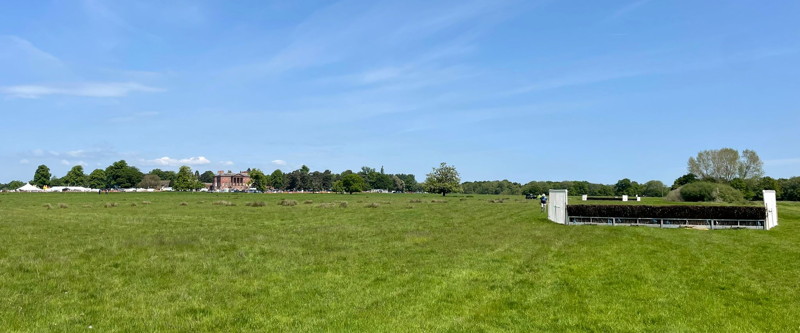
Anyone looking to involve themselves in pony racing needs to be of the right age. This should be anywhere between 9 and 15. It serves as a route for people to go down, regardless of background. Even those who don’t have the financial means or the understanding of access to riding can join. In competition format, it operates at two different levels:
- The grass roots Point-to-Point Series, starting from the age of 9
- The Racecourse Series, starting from the age of 11
Both of those formats have their own racing series, too. The Racecourse Series is what serves as the elite level, featuring up to 24 races every year. These take place between April and September. Usually, they occur right before or after a race meeting in Britain. The series often builds to quite the climax when the finals arrive. In 2022, the Racecourse Series had its schedule announced in April. Events have taken place throughout the year already, with more still to come. These include the following upcoming pony races:
- October 8 – Chepstow Racecourse. 138cm – 1m2f. 148cm – 1m3f.
- October 22 – Cheltenham Racecourse. 138cm – 7f. 148cm – 1m1f.
Others to have already occurred in 2022 include those at Ascot, Carlisle, Bangor and York. Through taking part in these events, once they reach the age of 16, riders will have some experience. They will then know what to expect if they further their career into horse racing. The formats of race days and what to expect from them is already ingrained.
When it comes to Point-to-Point racing, there is a lot more of these events each year. The first event of 2022 occurred on January 23 at Cocklebarrow racecourse. Since then, many Point-to-Point events have taken place in proceeding months. They came to a close on June 11 at Umberleigh as part of the Torrington Farmers meet.
Riders can enter five different race types in Point-to-Point. These are:
- Maiden Race – For those who have never qualified and never won any race. Neither rider nor pony can have taken part in the Racecourse Series.
- Novice Rider Race – For qualified riders who haven’t won an open Point-to-Point at the start of the season. They also cannot have won an open Pony Club Race, a Novice Rider race or an Intermediate Race.
- Intermediate Race – For those who have no won or placed second in an open Point-to-Point or open Pony Club Race. Also for those who haven’t won more than two intermediate races.
- Open Race
- Conditions Race – This can be either a Maiden, Novice Riders or Intermediate race.
Jockey James Bowen is a former pony racer who went on to win the Welsh Grand National in 2018. He was 16 years old at the time. In an odd turn of events, his horse was the oldest winner of that race in 90 years, aged 13. “From the age of eight, I knew I was going to be a jockey”, said Bowen after that victory. While that mindset would likely have propelled him to horse racing success, would success have come so soon? There is little doubt that engaging in pony racing helped to drive him there. Especially considering he would be aware of the demands of competition beforehand. It was only two years before winning that big horse racing event that he was pony racing.
You Don’t Need to Be from an Equestrian Family
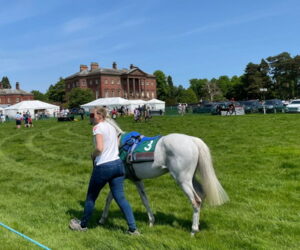 Horse racing can often seem like an unobtainable dream for some people. After all, not everybody has a horse racing heritage to base their future plans on. There is a likelihood that some people have never been able to realise those dreams in the past. With pony racing, beginners can also get involved. You don’t need to have any sort of background with horses or horse racing. That’s not to say that there won’t be those types of riders there. It’s inevitable that those who do come from such background are likely to excel in it. And at a swift rate. But there is an important piece of information to remember. The benchmark for success is not only based on those who make it as horse racing jockeys.
Horse racing can often seem like an unobtainable dream for some people. After all, not everybody has a horse racing heritage to base their future plans on. There is a likelihood that some people have never been able to realise those dreams in the past. With pony racing, beginners can also get involved. You don’t need to have any sort of background with horses or horse racing. That’s not to say that there won’t be those types of riders there. It’s inevitable that those who do come from such background are likely to excel in it. And at a swift rate. But there is an important piece of information to remember. The benchmark for success is not only based on those who make it as horse racing jockeys.
Instead, it is about providing access to horses for everyone who holds an interest. While it may seem like pony racing is only for the privileged few, that’s not the case at all. That is provable, too. Clarissa Daly, who is the CEO of PRA since 2012, has proper figures on it. She notes that only 20% of the 250-270 youngsters engaging in pony racing are actually from privileged backgrounds.
“Essentially, the Pony Racing Authority is today reaching out beyond racing’s normal parish to attract potential jockeys from less likely audiences”, she commented.
Those young people who don’t own their own pony can belong to a riding club. Ponies are instead hired out for these riders. Four schemes at four Pony Club centres across Great Britain offer positions. This allows children to go through a 12-week course in pony riding. If they display capable abilities, then they get the chance to take part in a pony race. Daly has had designs on that number doubling to eight, although that requires funding.
The fact remains that over 60 children partook in those schemes from 2014-2018. Funds for those came from the Racing Foundation. Five of those youngsters have continued on to the British Racing School.
The Ebony Riding Club centre in Brixton, London, has quite the success story. From that centre, two children advanced through a scheme and raced at Ascot in 2017. “It shows it is working and can make such a difference“, said Daly.
Differences Between Horse Racing and Pony Racing
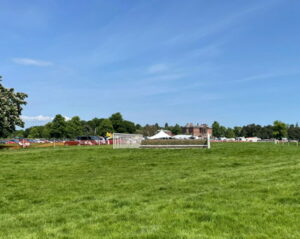 Apart from being a sport for young people to experience, pony racing has other qualities. These make it different to horse racing, even if it serves as a lead-in to that. Pony racing definitely mirrors the horse racing seen on television. It takes place on licensed racecourses around the country, too.
Apart from being a sport for young people to experience, pony racing has other qualities. These make it different to horse racing, even if it serves as a lead-in to that. Pony racing definitely mirrors the horse racing seen on television. It takes place on licensed racecourses around the country, too.
One of the prime differences is the age of the ponies. Of course, ponies are smaller than horses, which makes them ideal for younger riders. Any pony competing in racing cannot be taller than 148cm. They also need to be between the ages of 5 and 20. These competitors need to be fit and healthy to be able to race, too. Racehorses in standard horse racing can compete from the age of 2.
It is for the height reasons that pony racing has two categories per race. Those are the 138cm and under and the 148cm and under. If attending a Pony Club Raceday, then you may also experience a 128cm and under category, too.
It is also key to note that you cannot place any sports bets on pony racing. That differs to horse racing betting, which is in itself a very popular activity in the UK. But pony races take place with jockeys who are under the age of 16. And this is why betting on such events is not possible in the United Kingdom. In this case, you will not find any sportsbooks providing markets and odds on pony race events.
